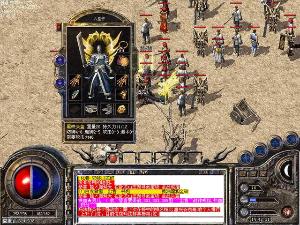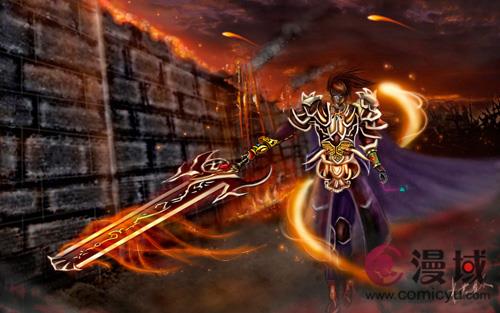◎欢迎参与讨论,请在这里发表您的看法、交流您的观点。
火龙: mythological symbolism, cultural significance, and representations
星期日 2024年9月29日 admin 装备介绍 火龙 0人
火龙: mythological symbolism, cultural significance, and representations
火龙, or "Fire Dragon," is a remarkable creature in various mythologies and cultures around the world. These legendary beings are often depicted as powerful, majestic, and sometimes fearsome entities that command respect and awe. The symbolism of fire-drakes transcends boundaries; they represent strength, wisdom, and transformation. This article will delve into the mythological symbolism, cultural significance, and different representations of 火龙, shedding light on their diverse roles across civilizations.
Mythological Symbolism of 火龙

In numerous mythologies, 火龙 is not just a fierce creature; it embodies various symbolic meanings. In Chinese culture, for example, the dragon, or 龙 (lóng), is a symbol of power, authority, and auspiciousness. The fire aspect of the dragon heightens these attributes, representing transformation and purification. Fire has myriad roles in myths and legends, and when combined with the dragon, it often signifies the balance of destructive and creative forces. For instance, fire can destroy, but it can also regenerate life, much like the cycles of nature. As such, 火龙 symbolizes the duality of destruction and creation, representing the essence of lifes perpetual transformations.

In Western cultures, fire dragons frequently have a more sinister aura, often being seen as monstrous threats to humanity. The fire they breathe is shown as a means of their formidable power and is a portrayal of chaos and danger. Nevertheless, they also represent the challenges one must overcome to reach greatness. In this view, the火龙 becomes a metaphor for overcoming personal trials and the transformative power of facing ones fears. This deep-rooted psychological and archetypal symbolism of fire dragons resonates with many individuals on multiple levels, often manifesting their internal battles within their narratives.
Cultural Significance of 火龙
The cultural significance of 火龙 varies widely. In Eastern traditions, especially Chinese folklore, dragons are revered as auspicious beings associated with water, rain, and fertility. The fire dragon specifically might be linked with the elements of summer, showcasing its role in abundance and growth. Festivals like the Chinese New Year often depict dragons in parades, illustrating their central role in cultural practices and rituals aimed at inviting good fortune and bountiful harvests.
Moreover, in modern subcultures,火龙 has found representation in literature, video games, and films. Genres like fantasy often portray fire dragons as key characters, embodying traits such as bravery, adventure, and courage. For instance, in series like "Game of Thrones," dragons serve as symbols of power and dominance but also evince compassion and allegiance. Such modern representations continue to influence how 火龙 is perceived in contemporary cultures, reflecting evolving narratives that encapsulate the essence of these majestic beings.
Representations of 火龙 in Art and Literature
火龙 has etched its place in various art forms, illustrating the creatures fascinating nature and the complexities of its symbolism. In traditional Eastern art, fire dragons are often elegantly portrayed, showcasing their flowing scales and vibrant colors, emphasizing their majestic and divine characteristics. These artistic depictions serve not only to admire their beauty but also to channel the beliefs and values of the cultures that created them.
In Western art, however, fire dragons may lean towards a more chaotic representation, defined by ferocity and destruction. This portrayal often serves as a cautionary emblem or a representation of chaos that must be tamed. Literature has additionally embraced the symbolism of 火龙, from ancient texts to contemporary novels. These representations can lead to profound narratives when interwoven with human experiences, representing both mythical grandeur and personal challenges. Thus, the fire dragon remains a versatile figure in art and literature—a bridge between humanity and the mythic world.
In conclusion, 火龙, or Fire Dragon, symbolizes a rich tapestry of meanings across different cultures and mythologies. The duality of these creatures highlights the complexities of existence, embodying conflict, regrowth, and strength. As cultures continue to evolve, so too does the significance of 火龙, ensuring its legendary status endures in our collective consciousness.
Frequently Asked Questions about 火龙
1. What does 火龙 represent in Chinese culture?
In Chinese culture, 火龙 symbolizes power, authority, and auspiciousness, often associated with transformation and purification.
2. How do Western cultures view 火龙 compared to Eastern cultures?
Western cultures often depict 火龙 as monstrous and chaotic, representing danger and challenges, while Eastern cultures revere fire dragons as auspicious and protective beings.
3. What are some popular representations of 火龙 in modern media?
火龙 has been represented in various forms of modern media, including video games and literature, often symbolizing power and adventure, such as in "Game of Thrones."
4. How is fire incorporated into the symbolism of 火龙?
Fire in the symbolism of 火龙 represents the balance between destruction and creation, regeneration, and transformative power in both mythology and reality.
5. What role do fire dragons play in cultural rituals?
Fire dragons play crucial roles in cultural rituals, particularly in Eastern traditions where they are associated with good fortune and are depicted in festivals addressing fertility, rain, and bountiful harvests.
- 本文标题:火龙: mythological symbolism, cultural significance, and representations
- 本文地址:http://www.cn565.com/post/166.html